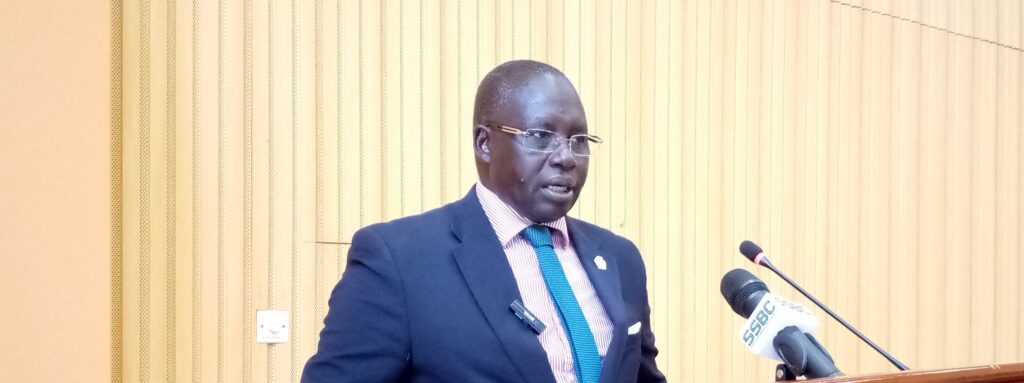South Sudan’s Ministry of Foreign Affairs has accused some Western diplomatic missions in Juba of trying to meddle in the country’s internal affairs after they raised concerns over the national parliament’s passage of legislation that gives the National Security Service (NSS) the authority to conduct arrests and detentions without warrants.
In a Wednesday joint statement, the Embassies of Canada, the European Union, France, Germany, the Netherlands, Norway, Sweden, the United Kingdom, and the United States said the bill would “constitute a significant step away from the opening of political and civic space, which is a prerequisite for genuine and peaceful elections to take place.”
The diplomatic missions emphasized that “enactment of the bill into law would be regrettable at any time, but particularly now when it would undermine the transitional government’s assertions that political and civic space exists.”
Speaking at a press conference in Juba on Friday, the foreign ministry’s spokesperson, Wol Mayar Ariec, said that the ministry “notes with regrets and great concern the unfriendly approach adopted by a group of missions by taking blatant steps in meddling in the internal issues related to matters of sovereignty of the Republic of South Sudan via social media and mainstream media without proper consultation with or awareness of the ministry or the relevant bodies in the country through the known abnormal diplomatic channels.”
Wol said the statement that appeared in the media “constitutes a serious interference in the internal affairs of the Republic of South Sudan.” He emphasized that the statement “seems to be a blatant move designed to undermine and incite the public opinion against the authorities, which shows a clear intention to undermine the government.”
“It is with great regret that the aforementioned missions opted to act contrary to known friendly diplomatic norms and decided to grossly interfere with issues of national concern that are even still being discussed in the National Legislative Assembly,” he said.
The spokesperson urged the foreign missions accredited to South Sudan to desist from “deliberate involvement in issuing such unfriendly statements and hostile positions that are not acceptable to the government of South Sudan.”
However, he said the ministry’s doors remain open for all forms of constructive engagement or receiving any concern related to issues of mutual interest from the foreign embassies.
Last week, South Sudan’s parliament voted in favour of the National Security Act 2014 (Amendment) Bill 2024, and President Salva Kiir will have to approve it within 30 days for it to become law.
Sections 54 and 55 of the bill empower National Security officers to arrest and detain, without a warrant, any person suspected of committing an offence against the State.
These offences are broadly and loosely defined in section 7 of the bill, resulting in many people being arrested and detained for legitimate civic and political activities. Although any detainee must be brought before a judge within 24 hours, this rarely happens.
This comes ahead of the country’s first-ever election on December 22.




